Kidney cancer is one of the rare diseases. Only between three to four percent of all cancer patients suffer from malignant tumors of the kidney. Most kidney cancer occurs in the form of a hypernephroma or renal cell carcinoma.
What is kidney cancer?

Under the name Kidney cancer all malignant tumor tissues that affect the kidney are summarized. In adult patients, kidney cancer usually takes the form of renal cell carcinomas. In rare cases, Wilms tumors, lymphomas or sarcomas occur in this organ of the body.
Furthermore, usually only one kidney is diagnosed with cancer, and very rarely both organs of the urinary system suffer from malignant tumors. Regarding the gender distribution, it should be noted that more men than women suffer from kidney cancer. Noticeable physical symptoms of this cancer usually only appear in a very late phase of the disease.
Patients often complain of loss of appetite, fever, fatigue and inexplicable back pain. Therefore, kidney cancer is usually discovered by chance during an ultrasound scan of the abdomen, which the doctor performed on the patient for another reason.
causes
Of the Kidney cancer Like many other cancers, it has no specific cause. However, there are some factors that favor it.
These include heavy nicotine consumption, some pain relievers, chronic kidney disease, being very overweight and frequent contact with certain hazardous substances such as asbestos, some chemical cleaning agents and fuel.
Furthermore, genetic dispositions seem to be important. It is estimated that around one percent of all kidney cancer cases are due to mutated genes.
The altered genetic material is probably missing certain substances that inhibit the development of cancer. This abnormality makes it harder for the body to defend itself against tumors, so that cancer can develop more easily. Among other things, kidney cancer can develop in this way.
Typical symptoms & signs
Kidney cancer can be symptom-free for weeks, months, or even years. The first symptoms that indicate a serious illness are increasing pain in the flank or back.
The urine can be reddish to brown in color, urinary retention and occasionally incontinence can also occur. This is accompanied by general symptoms such as tiredness and exhaustion as well as a general decrease in physical and mental performance. There is also a fever and night sweats.
Due to the disturbed digestion and the persistent feeling of illness, there is also a loss of appetite. Then the patient loses weight and suffers from various deficiency symptoms, for example fatigue, dizziness and irritability. Eventually a palpable lump forms in the abdomen. A varicocele of the testicular varicose vein can develop in men.
If the cancer spreads to surrounding areas, other symptoms such as headache, stomach pain and movement disorders occur. Ultimately, the infestation leads to the patient no longer being able to eat properly and ultimately becoming bedridden. If the outcome is negative, kidney cancer leads to the death of the patient. If the carcinomas can be completely removed, the organ will usually recover completely.
Diagnosis & course
To diagnose Kidney cancer the use of imaging techniques is crucial. A physical examination, blood tests and analyzes of the urine do not lead to reliable results. For this reason, ultrasound examinations, magnetic resonance imaging and computed tomography are used. These methods have the ability to differentiate between tumors and other kidney diseases.
In addition, an X-ray examination with a contrast agent can provide information about a possible cancer of the kidney. Since kidney cancer can lead to life-threatening complications, early detection and treatment is important. In the early stages, the chances of recovery are up to 90 percent.However, if the cancer has already spread to other organs with metastases, the chances of survival in the case of kidney cancer decrease, depending on the type of infection, sometimes drastically.
Complications
Kidney cancer often causes serious complications. Malignant kidney tumors, for example, have the property of spreading through the body via blood and lymph vessels and affecting other regions of the body. A common consequence of kidney cancer is the appearance of metastases (daughter ulcers). The lymph nodes, bones and lungs are primarily affected by them. In rare cases, they also affect the patient's liver or brain.
This in turn threatens life-threatening complications. These include blood clots that block blood vessels or inflammation of the lungs (pneumonia). Blood clots in the heart, brain and lungs are particularly dangerous. Prompt treatment of kidney cancer is extremely important to counteract such sequelae. In most cases, surgery will take place.
With larger kidney tumors, obstruction of the flow of urine from the body is possible. This in turn leads to a build-up of urine. The accumulation of urine becomes noticeable through pain and infections. In the worst case, there is organ failure.
Complications in kidney cancer can also occur with surgical therapies. There is a risk that adjacent organs or body structures will be damaged as a result of the procedure. Sometimes this happens in the intestine. There is a risk of life-threatening effects such as peritonitis (inflammation of the peritoneum). If blood vessels are affected, this can cause bleeding, secondary bleeding or hematomas (bruises). If nerves are injured, numbness or paralysis are possible.
When should you go to the doctor?
Kidney cancer is a serious disease that, if left untreated, damages the kidneys seriously, then spreads to other organs and is fatal. The sooner the patient contacts a doctor with suspected kidney cancer, the faster the diagnosis can be made and treatment appropriate to the severity of the disease can be initiated. As with all types of cancer, the prognosis for kidney cancer is the best the earlier it is detected. In the early stages of the disease, a cure is still possible if the diagnosis is made on time. Later stages, on the other hand, are more difficult to treat and there is also the risk that the kidney cancer has already spread and that other types of tumors must therefore also be treated.
The difficulty with kidney cancer, as with many tumors, is that symptoms often only appear in the advanced stages of the disease and the first signs are not recognized as evidence of kidney cancer, if any. One of the first signs is a small amount of blood in the urine, which has no recognizable cause and does not necessarily have to be accompanied by pain. Since it can take a long time for kidney cancer to develop further characteristic symptoms such as pressure pain or palpable induration, a doctor should be consulted as soon as possible if there is blood in the urine.
Treatment & Therapy
Becomes a disease Kidney cancer When diagnosed, an operation is performed. The diseased kidney is often removed during the operation. This is the only way to ensure with certainty that no tumors remain.
Since the human body has two kidneys, the healthy kidney takes over the tasks of the excised kidney. If the tumor has already spread to other organs, radiation therapy is then recommended. This therapy eliminates any metastases in the body and thus slows the cancer from continuing to grow.
In addition, radiation therapy as part of kidney cancer treatment can alleviate typical bone pain. There is also the option of immunotherapy with a protein that regulates cell growth. This activates the immune system in order to defend itself against the tumors in the body. However, the effectiveness of this immunotherapy in the treatment of kidney cancer is questionable, so that further clinical studies are necessary.
Chemotherapy is not used. The reason for this lies in the lack of effectiveness of the drugs used as part of chemotherapy against kidney cancer.
Outlook & forecast
The prognosis for kidney cancer is based on the severity of the cancer. If the tumor is confined to the kidney, around 70 percent of patients survive for five or more years. The chances of healing are even better for small tumors. Recovery is possible in 90 percent of cases. If cancer screening is used regularly, tumors can be detected and treated at an early stage. Older patients over 40 in particular should take advantage of the annual routine check-ups. In general, early-stage kidney cancer can be treated well.
Stage III or IV kidney cancer offers a poor prognosis. In the third stage, the 5-year survival rate is only 50 percent. If metastases have already formed in a lymph node, the prognosis is even worse. In stage IV, the probability of healing is five to ten percent. In addition, the likelihood of a relapse increases with the stage. The prognosis is made by the specialist in charge, taking into account the severity of the disease and the willingness of the patient to undergo aggressive therapeutic measures. Social and financial factors also play a role.
The quality of life is not necessarily restricted in kidney cancer. Painkillers and comprehensive accompanying treatment aim to improve the patient's wellbeing.
prevention
At Kidney cancer there are no specific preventive measures. However, a healthy lifestyle and careful observation of certain body signals offer protection against kidney cancer. For example, high-fat food and smoking should be avoided. Painkillers should only be taken in exceptional situations. If you have unexplained back pain or bloody urine, it is advisable to consult a doctor early to clarify a possible kidney cancer.
Aftercare
Usually the doctor and patient talk about follow-up care before the end of the initial therapy. The location and rhythm of the examinations are determined. In principle, the appointments take place at least quarterly in the first year. The distance then widens. After years of complaint-free, an annual check is sufficient.
Integration into everyday life is an important topic of aftercare. A rehabilitation measure in which specialists from different disciplines are available facilitates the path to original life. Patients can, for example, be treated there with medication in order to live pain-free.
As part of the follow-up care, doctors check whether the kidney cancer has recurred. This is a not unlikely consequence. Doctors promise the best treatment options through an early diagnosis. A follow-up examination consists of a discussion about existing complaints. This is followed by a physical exam.
The doctor will also arrange for imaging tests and urine and blood analyzes. This form of follow-up care is extended if further secondary illnesses arise as a result of an intervention. Constantly high blood pressure can be reduced with medication, for example. If the kidney cancer causes emotional stress, psychotherapy, for example, can offer support.
You can do that yourself
Patients who are diagnosed with cancer will, in most cases, have to deal with the initial shock of the disease. Often they cannot think clearly in the first few days after the disease is diagnosed. An open and honest exchange with the treating doctor is important. Questions should be noted and discussed at the next doctor's visit. It is advisable to follow therapy and treatment instructions. Physical exertion must be avoided so that no further overloads occur.
Cancer patients can try a special form of nutrition. It promotes healthy food intake and is based on findings from cancer research. Mental techniques also help to experience cognitive relief. An inner balance can be established and stress can be reduced through meditation, yoga or autogenic training.
Exchanging information with other sick people via self-help groups or in internet forums can provide helpful tips and advice on how to deal with the disease. For a mental balance, communication about the existing fears, concerns or consequences of kidney cancer can be important. Discussions with people you trust are recommended.
The supply of pollutants and toxins is to be avoided. The consumption of alcohol, nicotine or drugs has a negative impact on general health and also weakens the immune system. Good sleep hygiene, sufficient exercise and oxygen, on the other hand, support the immune system.

.jpg)
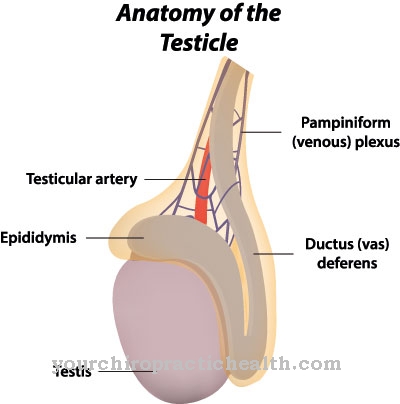
.jpg)
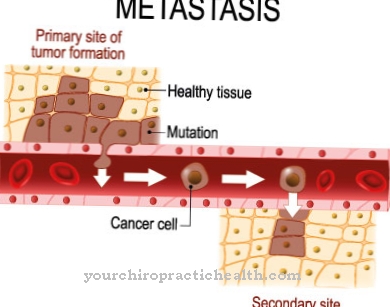
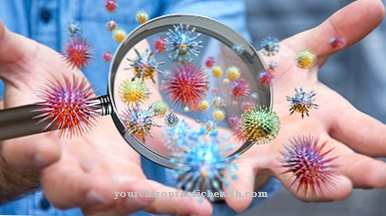



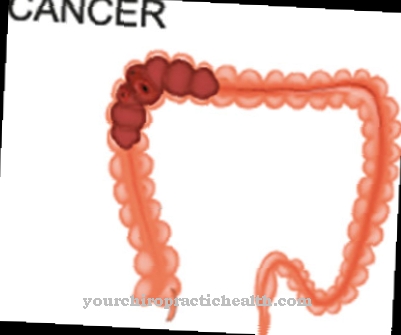


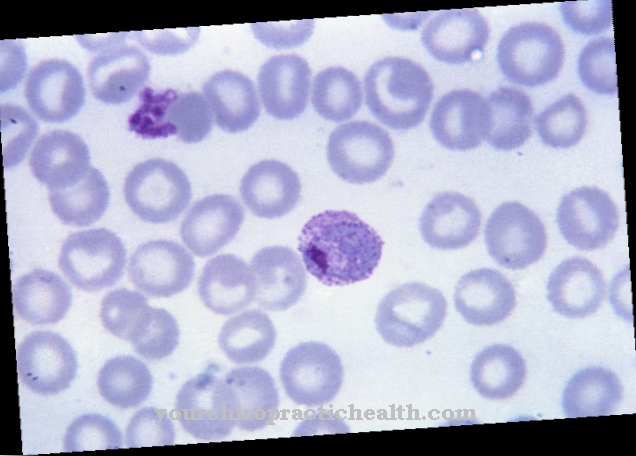


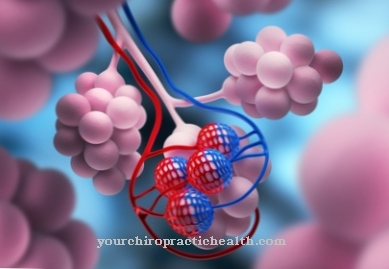

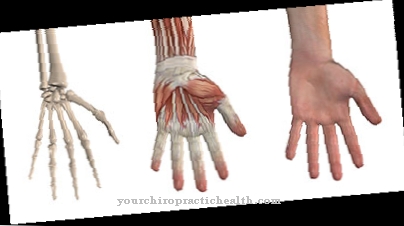






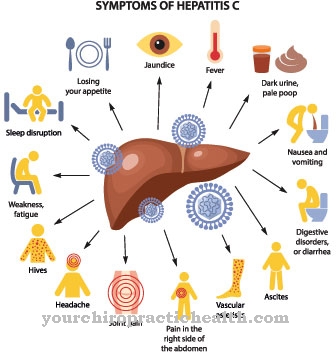
.jpg)


